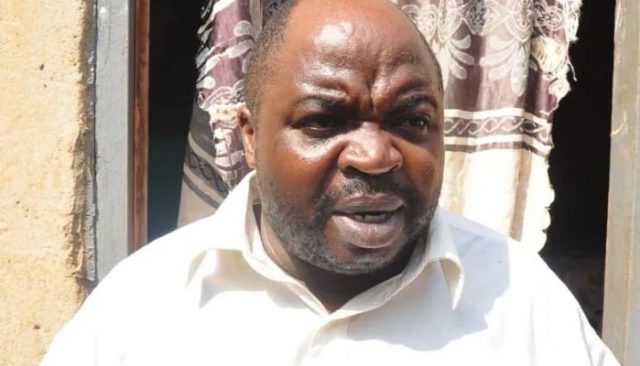A Ugandan individual reportedly discovered in possession of 24 human skulls is suspected of utilizing them for the purpose of human sacrifice and may potentially receive a life sentence.
According to police spokesperson Patrick Onyango, the accused, Ddamulira Godfrey, is set to be charged in accordance with the Prevention and Prohibition of Human Sacrifice Act. READ FULL STORY
Additionally, animal remains and skins were located at Godfrey’s shrine situated in the outskirts of the capital, Kampala.
Law enforcement officials continue to investigate the shrine in an effort to uncover further human remains.
“We are charging him first under the Prevention and Prohibition of Human Sacrifice Act, which [prohibits] one being in possession of human body parts and instruments of human sacrifice. If he is found guilty, he will serve life in prison,” Onyango said.
Godfrey presents himself as a traditional healer and herbalist; however, the Traditional Healers’ Association of the country has disassociated itself from him.
This revelation is not an isolated incident, as Uganda has witnessed similar alarming findings in recent weeks.
In a separate incident last month, law enforcement officials uncovered 17 human skulls at a shrine located in the central district of Mpigi, approximately 41 kilometers from Kampala.
Both incidents have been associated with human sacrifice for ritualistic purposes.
In various African nations, there exists a belief that magical charms crafted from human remains can bestow good fortune, such as wealth, or serve to curse adversaries.
Human sacrifice in Uganda
Human sacrifice in Uganda, particularly child sacrifice, is a significant and alarming issue driven by superstitions and the influence of witch doctors.
Authorities have recorded a disturbing increase in incidents, with 132 cases reported over three years, primarily targeting children due to their perceived purity and higher ritual value.
Victims are often sacrificed to bring good luck or financial success, with some cases linked to construction practices where bodies are buried to enhance prosperity.
Despite legal efforts to combat this, including the Prevention and Prohibition of Human Sacrifice Act, the practice persists, fueled by socio-economic factors and a lack of effective law enforcement.







